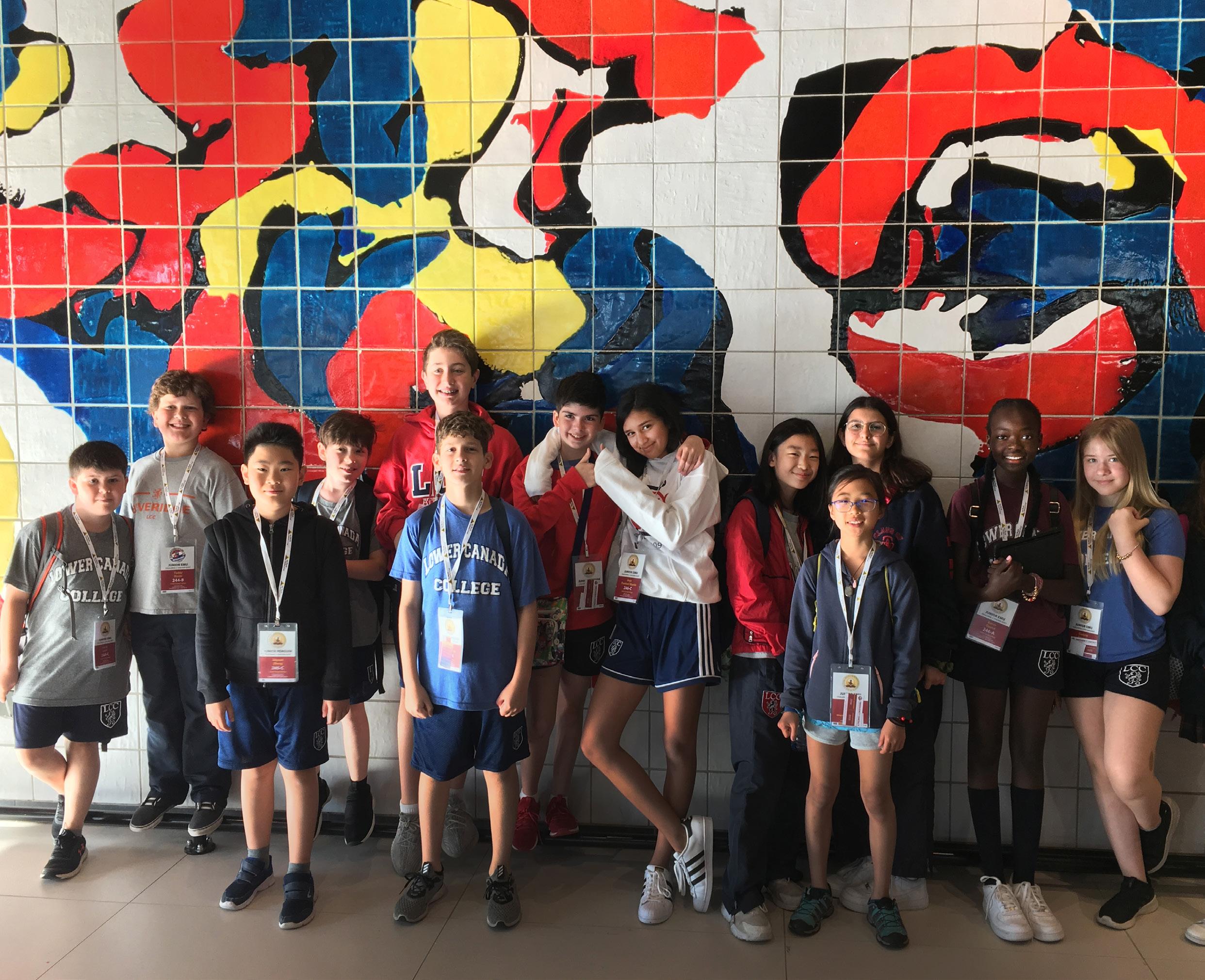
3 minute read
Worldly Endeavours
BY MARK BOGHEN, Writer
Photo above: World Scholar’s Cup 2019, The Hague
YOU are the Prime Minister of Belgium, proposing that the global community adopt a protocol to fight terrorism. Or a Quebec MNA, writing a spending bill to fund artificial intelligence research. Or perhaps you are pondering how to face a flooded Earth in the year 2140: solve the crisis and you can lead your school to international triumph. The daydreams of overimaginative high schoolers? Hardly! LCC students participating in Model United Nations, Parlement des jeunes, and the World Scholar’s Cup are facing just these kinds of challenges.
Model UN is a popular co-curricular journey into the world of international diplomacy. Middle and Senior School students play the parts of delegates to a simulated United Nations. Students are assigned countries and topics and work together in groups to research and formulate policy proposals that they will debate at various conferences. LCC participants usually attend congresses at CEGEPs like Marianopolis and Dawson as well as at McGill. In recent years, they have also tested their diplomatic mettle during trips to Washington, Chicago, Philadelphia and Boston. “After attending many conferences,” says Canran Xue ’20, “I’m able to speak confidently in front of a crowd, think in a more critical way and understand the world better.”

AmeriMUNC Model UN Conference, Washington, DC, March 2020
Lisa Lamantia, one of the teachers in charge of the Senior School team, is enthusiastic about the benefits of the program. “Our students really enjoy meeting delegates from all over. They also get to walk in the shoes of an ambassador or negotiator. Crisis in North Korea? Strikes in Venezuela? These are really complex issues. Often, they see the flaws in the global system and begin to tackle ways to improve it.”
If Model UN members thrash out issues in the halls of a pretend United Nations, Parlement des jeunes participants actually get a chance to sit in the real National Assembly in Quebec City. Aimed at students in grades 9 and 10, the program, conducted all in French, stimulates an interest in and deeper understanding of civic life in Quebec. During the school year, budding parliamentarians research and write bills that they hope will be among the few that are chosen for debate in the Assembly. Then, during an exciting trip to the provincial capital, they practice the art of persuasion just as real politicians do, learning about the role of parties and government structure along the way. “Democracy is a core concept in my teaching,” says Julie Poirier, a Senior School and IB French teacher who has led the activity for the past two years. “This gives young people the chance to experience its workings from the inside.” And who knows what seeds may be planted?
According to Maxime Theriault ’21, “It made me consider becoming a member of parliament!”

Parlement des jeunes, January 2020
Still globally minded but less political, the World Scholar’s Cup is a fascinating international academic team competition only a decade old, with LCC having participated for the last four years. Junior School students face challenging multiple choice exams, sophisticated collaborative writing exercises and high-level debates as they vie for points and placement in the standings. LCC’s team travelled to Athens in 2017, Barcelona in 2018, and The Hague in 2019 for the Global Round, often finishing with very strong results. Sacha Louro ’25 was clearly unbowed by the demands of the often rigorous schedule: “It’s really fun ... you learn some interesting and unfamiliar facts. For instance, that you shouldn’t sleep on your stomach, or that radium was used as an anti-wrinkle treatment in the early 1900s.”
Along with the annual Destiny Quebec Global Issues Conference that LCC hosts, and the dozens of students who pursue the prestigious Certificate of Sustainable Global Leadership (both covered in the Fall 2019 issue of the LION), opportunities to face important political questions are ample. The wide world beckons, and these curious and committed LCC students respond.










